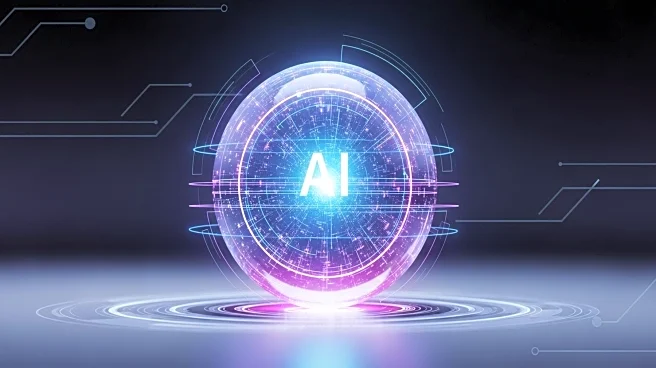What's Happening?
Scientists have created an AI model, Delphi-2M, capable of predicting medical diagnoses years in advance. The model uses data from the UK Biobank to predict the rates of over 1,000 diseases based on a patient's case history. Delphi-2M employs transformer architecture, similar to that used in language-based AI models like ChatGPT. The model learns patterns in healthcare data, enabling meaningful and health-relevant predictions. While promising, Delphi-2M requires further testing before clinical use.
Why It's Important?
The ability to predict future medical diagnoses has significant implications for healthcare, potentially enabling earlier interventions and preventative medicine. Delphi-2M's predictions could optimize resource allocation across healthcare systems, improving efficiency and patient outcomes. As AI technology advances, models like Delphi-2M could transform healthcare by providing insights into disease risk and guiding monitoring efforts. However, ethical considerations and biases in datasets must be addressed to ensure responsible use.
Beyond the Headlines
The development of interpretable AI models is a key research goal, as many large AI models remain mysterious even to their creators. Delphi-2M represents a step towards scalable and ethically responsible predictive modeling. Researchers emphasize the importance of transparency and explainability in AI, ensuring that models are used effectively and responsibly in healthcare settings. As AI continues to evolve, the focus will be on developing models that provide clear and actionable insights.








